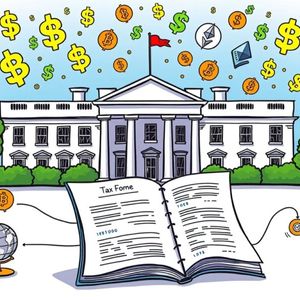The U.S. Treasury is raising the stakes on short-term borrowing, and it’s coming straight from Scott Bessent, the same guy who once swore off this playbook. The department announced on Wednesday that it will ramp up issuance of Treasury bills, debt that matures in one year or less, to help fill a widening gap in the government’s budget. The move keeps in place a Biden-era strategy that Scott had publicly rejected before stepping into the role of Treasury Secretary. According to the Financial Times , the department confirmed it would hold steady on auction sizes for long-term bonds “for several quarters.” That means the extra cash needed, roughly $1 trillion this quarter alone, will come from selling more short-term debt, and they will carry the burden of keeping the federal government funded, at least through September. Scott leans into short-term strategy he once rejected Before taking office, Scott criticized this exact method of financing, which was introduced under former Treasury Secretary Janet Yellen. Now he’s not just continuing it, he’s deepening it. By focusing more on shorter maturities, the department can borrow aggressively without putting upward pressure on long-term interest rates. Longer-dated bond yields influence a wide range of borrowing costs, from mortgage rates to business loans. But Scott’s approach also carries serious risk: short-term debt turns over fast, and it must be constantly refinanced at whatever interest rate the market dictates. On Monday, the department said it would raise $1 trillion in the July–September quarter, up from $554 billion during the previous quarter. Officials attributed the increase to technical funding needs created by the debt ceiling. Over the past two decades, Treasury auctions have consistently grown to match rising federal expenses, from tax cuts to government programs. But using short-term paper to do it adds volatility. If interest rates rise quickly, the cost of rolling over that debt can explode. Back when Yellen pushed this approach, she faced criticism from economists Stephen Miran and Nouriel Roubini, who argued the government was effectively running a “stealth” monetary policy by pushing down long-term rates. In a paper, they called it “activist Treasury issuance,” saying it blurred the lines between fiscal management and the Federal Reserve’s job of setting interest rates. Miran now serves as head of President Donald Trump’s Council of Economic Advisers. Scott calls out the Fed, brushes off trade deadline concerns While outlining his debt plans, Scott also took time to call out the Federal Reserve. Speaking at a Breitbart News event in Washington on Wednesday, he said he does not expect the Fed to cut rates this week. Instead, he urged them to show “a little bit of imagination” in how they approach policymaking. He also said central bankers were wrong in predicting that Trump’s tariffs would push up inflation. “Policymakers will prove to have been wrong,” he said. Scott pointed out that the markets are already pricing in future rate cuts, but he advised people not to panic if Trump’s August 1 trade deadline passes without a deal. That’s the day Trump said tariff rates could rise to “reciprocal” levels, a term he defined on April 2. Scott said negotiations could still continue beyond the deadline, and that tougher tariffs might even help get other countries’ “attention.” He added, “I would expect that it’s going to be a busy August.” Scott also spoke on recent trade developments. He said deals made with Japan and the European Union last week helped shape the tone of the latest negotiations with China. He led those talks himself in Stockholm, along with U.S. Trade Representative Jamieson Greer. According to Scott, the Chinese delegation “were on their heels,” adding, “The rest of the world is now with us.” Want your project in front of crypto’s top minds? Feature it in our next industry report, where data meets impact.















